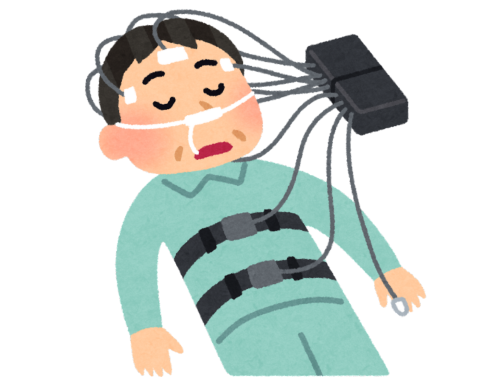Pediatric Sleep Studies
Pediatric Sleep Studies
Sleep study, also known as polysomnography, is a specialized test to evaluate a child's sleep patterns, breathing during sleep, and overall sleep health. Sleep studies are essential for identifying conditions such as sleep apnea, insomnia, restless leg syndrome, narcolepsy, and parasomnias (like sleep-walking or night terrors).

The two main types of sleep studies are:
Polysomnography (PSG)
This is the most comprehensive type of sleep study. It is conducted in a sleep center or hospital, where the child stays overnight. Sensors are attached to the child’s body, including the scalp, face, chest, and legs, to record information while the child sleeps. These sensors monitor multiple parameters such as brain waves, heart rate, breathing pattern, oxygen levels, and muscle activity.
Home Sleep Apnea Test (HSAT)
A home sleep apnea test is a simplified version of a polysomnography that focuses primarily on diagnosing sleep apnea. In this test, the child wears a portable device at home that monitors the heart rate, oxygen levels, airflow, and breathing patterns during sleep. HSAT is convenient, but it is less comprehensive than polysomnography.
When is a sleep study required?
Sleep studies may be recommended if a child exhibits signs of a sleep disorder, including one or more of the following:
- Frequent/persistent snoring with visible difficulty in breathing during sleep, including pauses.
- Sleep disturbances such as frequent night waking, difficulty falling asleep, or unexplained nightmares and night terrors
- Excessive daytime sleepiness
- Behavioral problems such as hyperactivity or difficulty focusing
- Restless legs or body movements during sleep
- Abnormal sleep patterns such as sleepwalking, talking in their sleep, or other parasomnias
Preparing Your Child for a Sleep Study
- Depending on your child’s age, explain the procedure in simple terms. Reassure them that the test is painless and will help the doctor understand their sleep better.
- If your child is nervous, bring along a favorite blanket or stuffed animal to make them feel more at ease.
- Try to keep your child’s usual bedtime routine to ensure they feel comfortable and relaxed before the study begins.
- Make sure your child avoids caffeine or any other stimulants on the day of the study to ensure they can sleep well during the test.
- Your child may be asked to refrain from certain medications or activities before the test. Be sure to follow any specific instructions from the sleep center.
If your child is experiencing symptoms of a sleep disorder, consulting with a pediatrician or sleep specialist can help determine if a sleep study is necessary. Appropriate diagnosis and treatment of sleep disorders can lead to a healthier child who thrives better during the waking hours.
